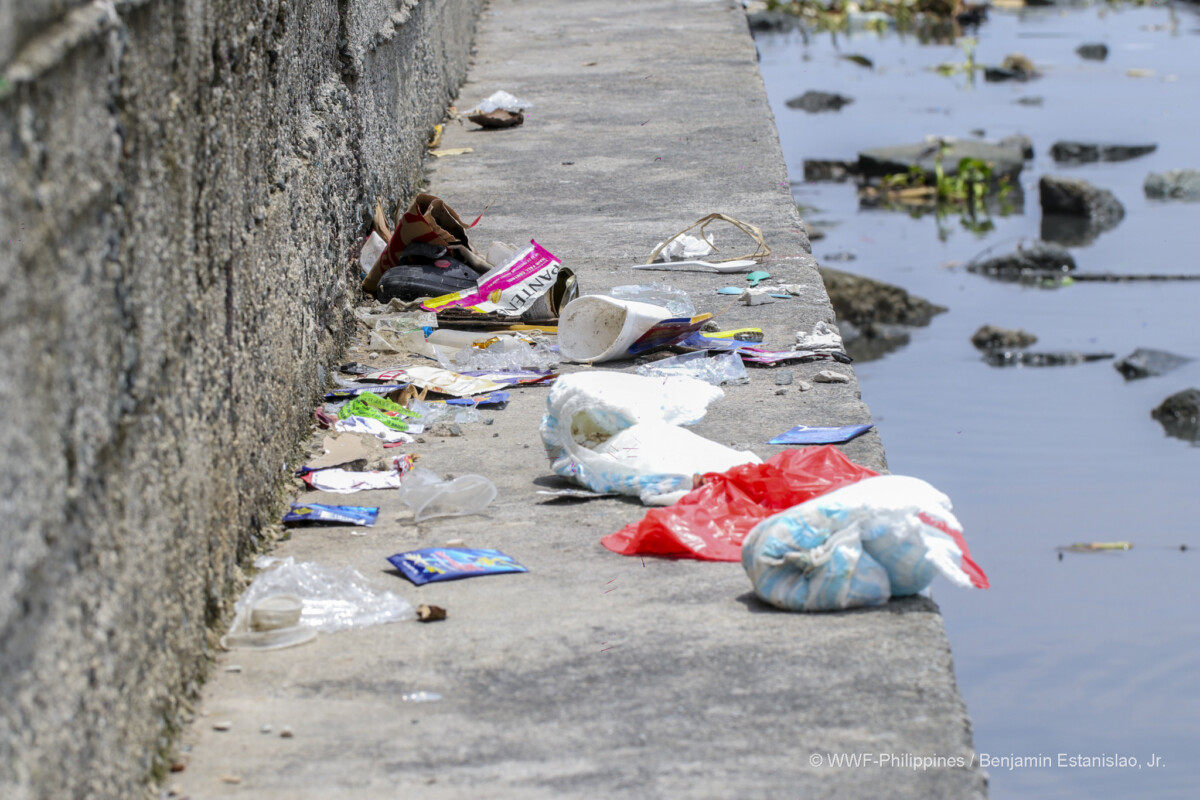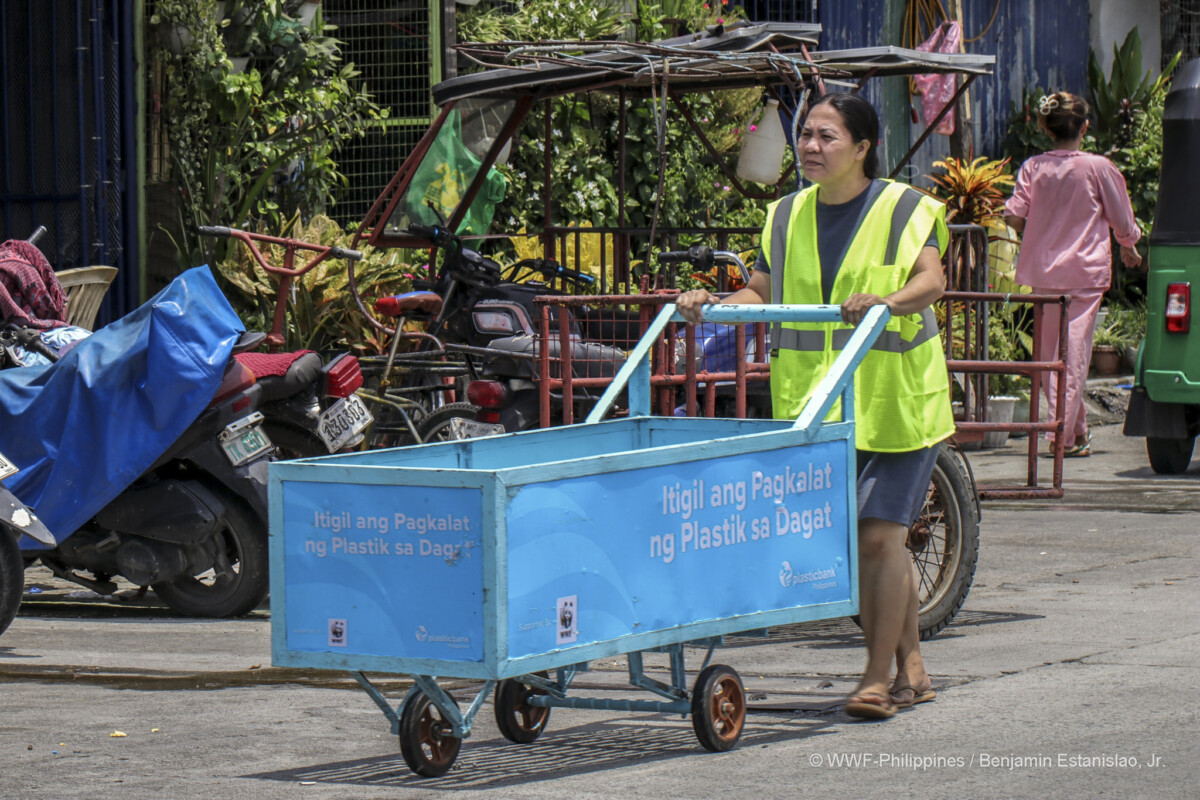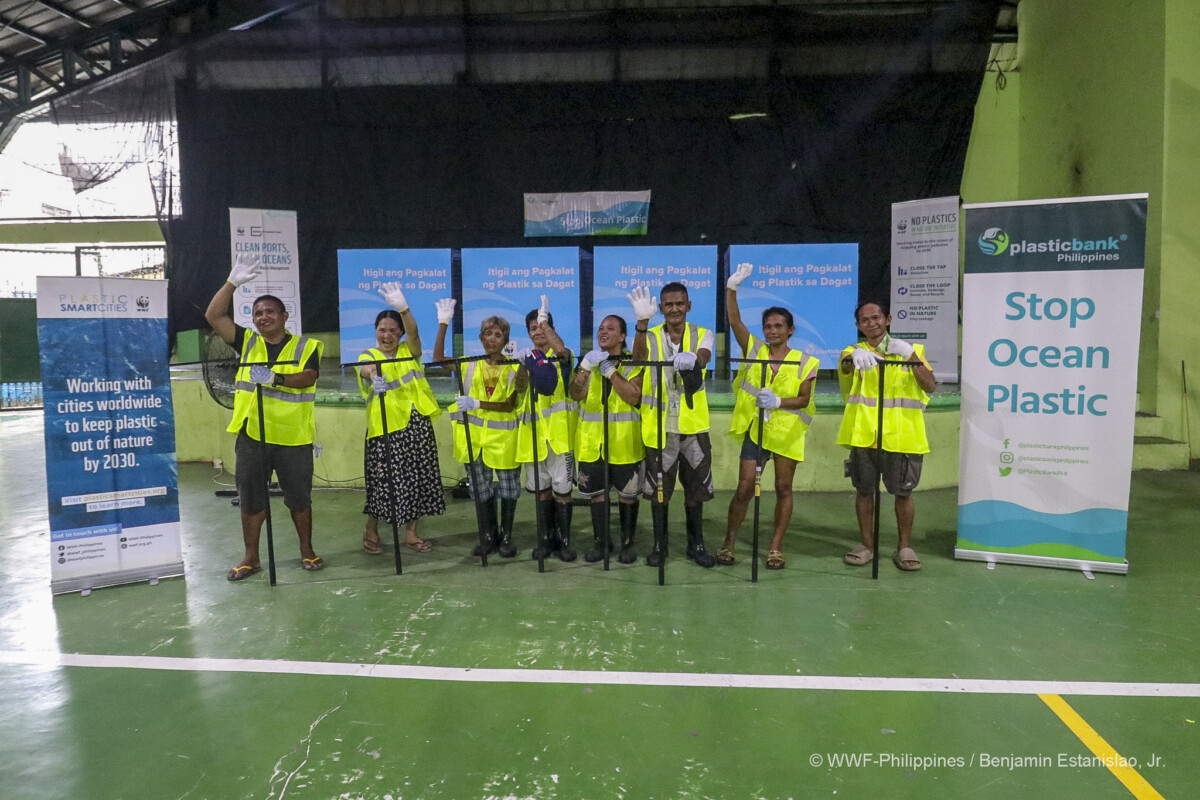Pioneering change in the plastic crisis: Gerlie's journey
Gerlie, a determined waste picker that provides vital services for the community where she lived, has been able to harness the power of recycling to forge a path for herself and her family.
Gerlie, an informal waste picker from Baseco Compound in Manila, is collaborating with Plastic Bank, a social enterprise that provides incentives to the collectors for the waste they bring in. Plastic Bank partners with junk shops such as the Tanael Junk Shop near the Manila North Harbour to pay higher prices for the plastic waste collected, and provide essential support to waste workers like Gerlie.
Plastic Bank is one of the partners of the WWF Clean Ports, Clean Oceans: Improving Port Waste Management in the Philippines project funded by the Grieg Foundation and implemented in partnership with the Grieg Group which aims to reduce plastic waste leakage from three majors port in the Philippines: the Manila North Port, the Port of Batangas and the Port of Cagayan De Oro.
Through this newfound alliance, Gerlie gained access to health benefits, safety equipment, and financial assistance.
Inclusivity as a solution
In the vast informal sector in the Philippines, waste pickers like Gerlie often toil amidst the streets of the city, exposed to numerous hazards without adequate safety gear. Sadly, their invaluable contributions to their community and to combating plastic pollution often go unrecognized, and they receive no benefits from the government at present.
Gerlie's story is not isolated; a recent WWF-Philippines study revealed that many women find themselves in the informal plastics economy, gravitating towards part-time, insecure, and potentially hazardous work such as waste collection.
“We would collect empty bottles from our neighbors. When I drop off and pick up my kids from school and see empty bottles, I gather them,” says Gerlie.

Different kinds of plastic waste are scattered throughout Gerlie’s neighborhood.
Women, who are already more exposed to hazards caused by plastics because of economic and social roles, constitute a substantial portion of the informal waste sector. Gerlie exemplifies this reality, navigating the challenges of plastic waste management and striving to create a cleaner environment, while providing for herself and her family.
Gerlie's journey hasn't been without risks and dangers. As a waste picker, she has faced various hazards daily. However, the support she received from this initiative has lessened the risks in her work environment.
“We didn’t have gloves or safety vests before but thanks to [the project], we received these materials which made our work easier. By using gloves, our hands are no longer exposed to so much dirt and this is important because even though we struggle, we still have to take care of our health,” she says.
Building a dream
Since Gerlie joined the project six months ago, she has been able to collect more waste, significantly boosting her income.
Plastic Bank’s operations include partnering with junk shops and their collectors and giving them incentives or additional pay on top of the market price of the recyclables they sell to these shops.
In just six months, from January to June 2023, 17 waste workers members of the project collected 52,043 pieces of plastic that were recycled — much above the initial target of 6,200. They also received 11 new pushcarts, repairs for six pushcarts, and 10 steel cages to store their collected waste.
With enthusiasm in her voice, Gerlie describes the impact on her livelihood, stating, “My dream is to earn enough to start my own junk shop business. The project really helped and changed my life because we received not only new equipment but also financial assistance.”

Gerlie uses her new push cart to collect plastic waste and deliver them to junk shops to receive incentives.
By building her own junk shop, Gerlie hopes to increase her capacity to generate wealth and, more importantly, support other waste workers in her community.
“We empower the informal waste sector because they are considered as frontliners in keeping our environment clean. It’s important to help them because by helping them, we empower the whole community to be more socially conscious of how they dispose of their waste,” says Paul Orpiada, Deputy Operations Manager of Plastic Bank Philippines.
The Clean Ports, Clean Oceans: Improving Port Waste Management in the Philippines project’s goal is to develop and promote solutions that could help port cities tackle the plastic crisis, which include supporting waste workers.

Waste workers who are part of Plastic Bank’s network received new equipment such as safety gear under the Clean Ports, Clean Oceans: Improving Port Waste Management in the Philippines project.
“The country's current recycling rate is mainly brought by the waste workers' contribution. In working in the solid waste management system, it is important that we support the waste sector that helps us address this plastic pollution,” says Czarina Constantino-Panopio, Project Manager of the Clean Ports, Clean Oceans project.
Gerlie's story exemplifies resilience, determination, and the power of collective efforts. By joining forces with organizations like Plastic Bank and embracing her aspirations, she propels herself and her community towards a future where waste pickers receive the recognition, protection, and opportunities they truly deserve.
About WWF:
WWF is one of the world’s largest and most respected independent conservation organizations, with over 5 million supporters and a global network active in over 100 countries. WWF's mission is to stop the degradation of the Earth's natural environment and to build a future in which humans live in harmony with nature, by conserving the world's biological diversity, ensuring that the use of renewable natural resources is sustainable, and promoting the reduction of pollution and wasteful consumption.
WWF-Philippines has been successfully implementing various conservation projects to help protect some of the most biologically-significant ecosystems in Asia since its establishment as the 26th national organization of the WWF network in 1997.
